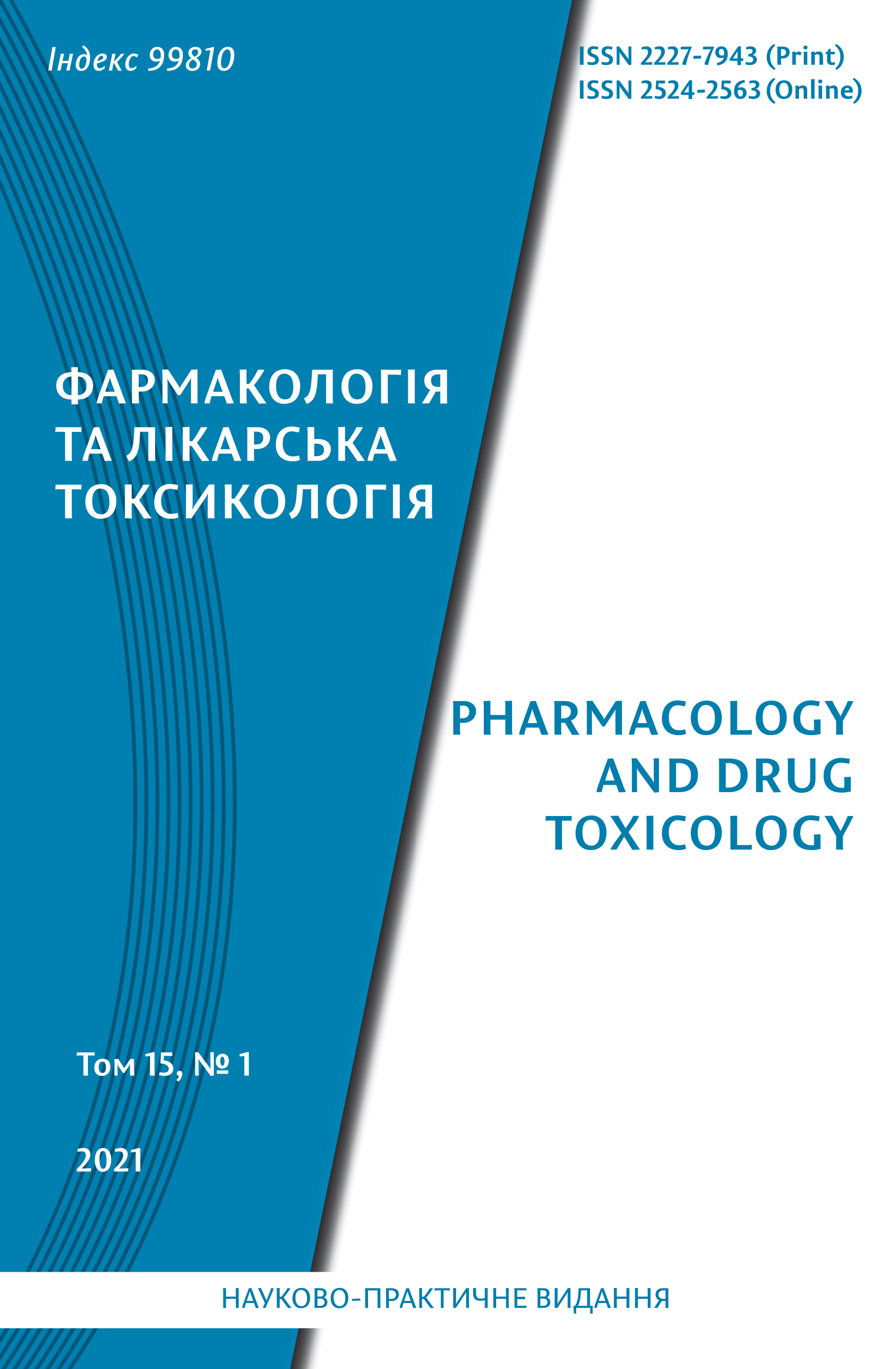Abstract
The aim of study – to investigate the interaction of peptide NP9, an original modified analogue of the terminal fragment of neuropeptide Y, with substances that inhibit (ethanol, thiopental sodium) or stimulate (pentylenetetrazole, thiosemicarbazide) the central nervous system.
The experiment was performed on 90 white female mice. Nonapeptide NP9 was administered intranasally to the animals at a dose of 0,2 mg/kg over 30 min before the experiment. The interaction of the NP9 peptide with ethanol (5,5 g / kg as a 12,5 % solution), thiopental sodium (70 mg/kg), pentylenetetrazole
(75 mg/kg), and thiosemicarbazide (25 mg/kg) was studied. Semax was used as a reference drug at a dose of 0,1 mg/kg intranasally.
Peptide NP9 does not show a significant effect on the deprimating effect of ethanol, but accelerates the onset and increases the duration of thiopental narcosis, which may indicate its GABA-positive properties. No significant interaction of the NP9 peptide with pentylenetetrazole and thiosemicarbazide was found.
Thus, the results obtained indicate the absence of dangerous pharmacodynamic interactions of the NP9 peptide with compounds that excite or depress the central nervous system through various mechanisms. This experimentally substantiates the possibility of its safe use in combination with appropriate drugs.
